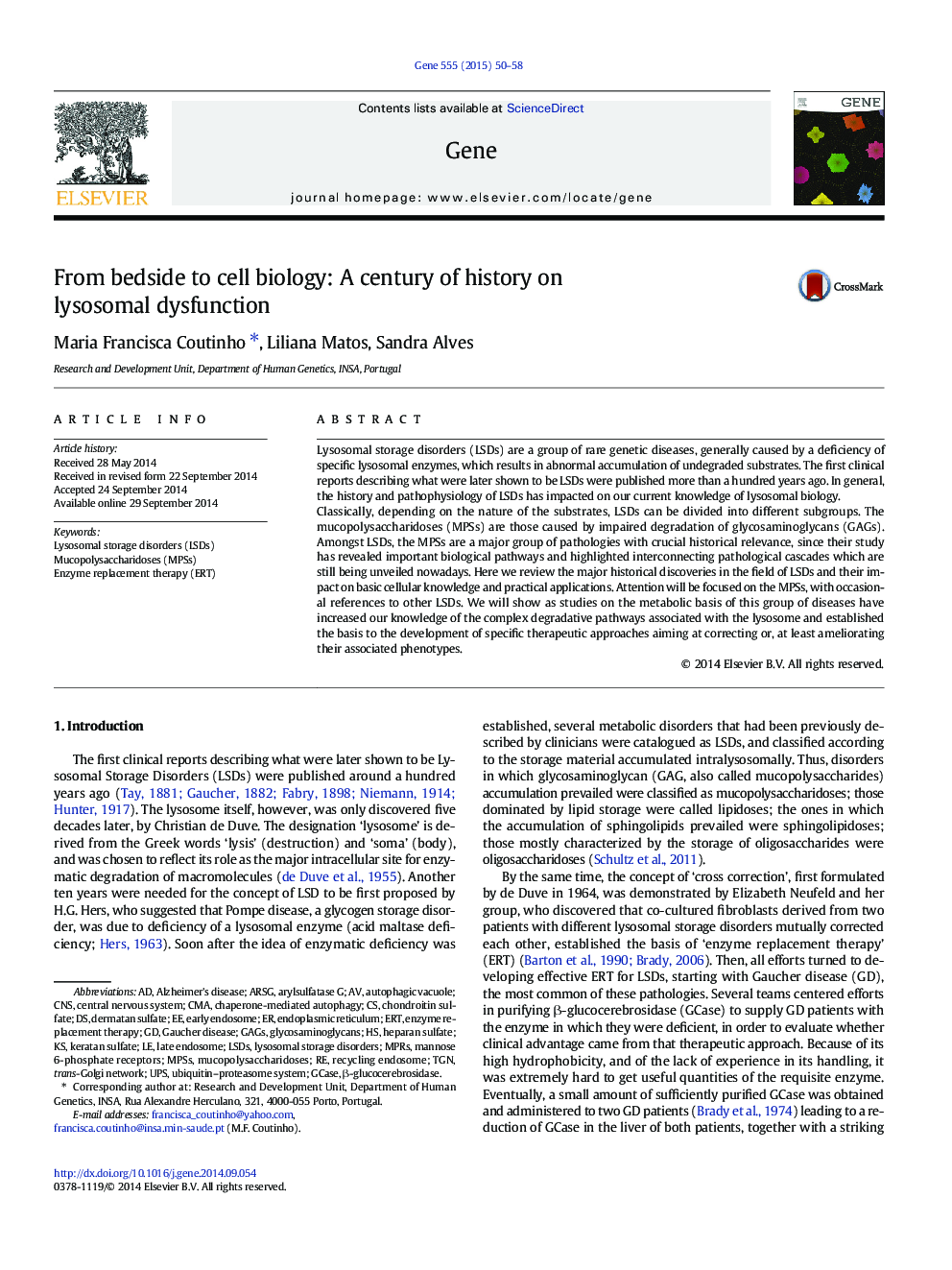| Article ID | Journal | Published Year | Pages | File Type |
|---|---|---|---|---|
| 2816016 | Gene | 2015 | 9 Pages |
•Review on the first MPS clinical descriptions•Establishment of the concept of lysosomal enzyme deficiencies•Cross correction studies using MPS fibroblasts as the basis of enzyme replacement therapy•The lysosome as central coordinator of cellular metabolic homeostasis•Future perspectives on lysosomal function and dysfunction
Lysosomal storage disorders (LSDs) are a group of rare genetic diseases, generally caused by a deficiency of specific lysosomal enzymes, which results in abnormal accumulation of undegraded substrates. The first clinical reports describing what were later shown to be LSDs were published more than a hundred years ago. In general, the history and pathophysiology of LSDs has impacted on our current knowledge of lysosomal biology.Classically, depending on the nature of the substrates, LSDs can be divided into different subgroups. The mucopolysaccharidoses (MPSs) are those caused by impaired degradation of glycosaminoglycans (GAGs). Amongst LSDs, the MPSs are a major group of pathologies with crucial historical relevance, since their study has revealed important biological pathways and highlighted interconnecting pathological cascades which are still being unveiled nowadays. Here we review the major historical discoveries in the field of LSDs and their impact on basic cellular knowledge and practical applications. Attention will be focused on the MPSs, with occasional references to other LSDs. We will show as studies on the metabolic basis of this group of diseases have increased our knowledge of the complex degradative pathways associated with the lysosome and established the basis to the development of specific therapeutic approaches aiming at correcting or, at least ameliorating their associated phenotypes.
